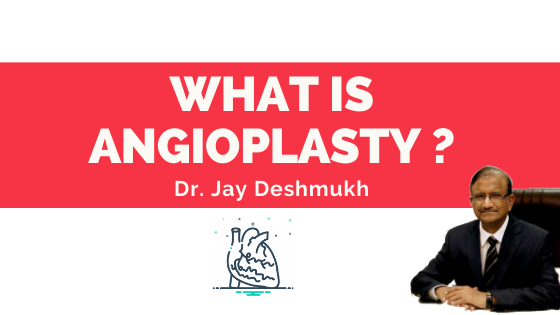How many individuals undergo angioplasty in India?
Dr Jay Deshmukh:- About 4.5 lac people undergo angioplasty in India every year. Many also get them treated by bypass surgery. Just a blockage in the coronary artery should not mean that it should be opened by balloon angioplasty. Angioplasty is often combined with the placement of a small wire mesh tube called as a stent. Most stents are coated with medication to keep your artery open. These are drug-eluting stents.
What are the advantages of angioplasty?
Dr Jay Deshmukh:- Angioplasty can improve symptoms caused by blocked arteries. It can improve breathlessness and chest pain. Angioplasty is the best option immediately after the onset of chest pain due to myocardial infarction. This opens up the blocked artery and improves blood supply to the ischemic heart muscle. It reduces the amount of damage to the heart muscle. It should be done as soon as possible after chest pain. In such cases, time is the essence. However, this is possible only if such facilities are available logistically and financially.
When is bypass surgery preferred over angioplasty?
This is done if the main artery that brings blood to your left side of heart is severely narrowed. Your heart muscle is weak and you have diabetes and have multiple blockages in your coronary arteries.
What are the risks of angioplasty ?
Though the risk is less than bypass surgery, narrowing of the artery can occur, though the risk is less than 5% in drug-eluting stents, blood clots in the stents can be avoided by taking blood thinners like aspirin and clopidogrel exactly as prescribed by your doctor. Never ever change or withdraw the blood thinners. This may lead to disaster. Bleeding may occur at the site of arterial puncture. This requires careful handling. Other rare risks include heart attack, coronary artery damage, kidney problems, stroke and abnormal heart rhythms. The risks are substantially less in experienced hands.
What are the results of angioplasty?
Having done angioplasty or stenting does not mean that the heart disease goes away. You will need to change your lifestyle and take your medications in a disciplined way. To keep your heart healthy after angioplasty you should quit smoking and tobacco, lower your LDL cholesterol levels, maintain a proper weight, treatment for diabetes, hypertension and anemia should be undertaken diligently and please exercise and do yoga regularly.
What are the common causes of coronary artery blockage and how to prevent them?
Atherosclerosis of the coronary artery is a progressive disease that can occur in the absence of risk factors. However, male gender, females after menopause, hypertension, diabetes, smoking beedis or cigarettes, tobacco in any other form, high cholesterol and high LDL levels , abdominal obesity, stress, lack of fitness and lack of physical activity and sleep deprivation and high homocysteine levels are a few identifiable causes for narrowing of coronary arteries.
What do the experts say?
Dr Ashok Seth, Chairman of Escorts Hospital, says that angioplasties should be done in patients with acute chest pain or if the chest pain is getting worse or unresponsive to routine medications. Dr Sojoy Shad of Sir Gangaram hospital Delhi suggest that needles angioplasties are not carried out in most centres in India. Angioplasties are overperformed hardly ever.
Can your life expectancy improve after angioplasty?
Quality of life improves in patients after angioplasty if advised on scientific grounds. Whether it can improve life expectancy is debatable. The success of angioplasty certainly depends on how you conduct yourself in terms of lifestyle modification, drug therapy and regular follow-ups.

